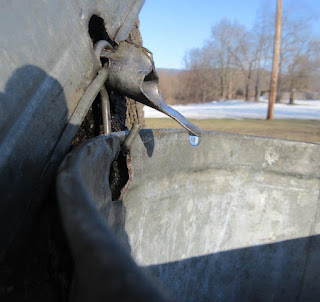According to the calendar, spring begins March 20. Six weeks from today, shadow or not, regardless of what the groundhog or marmot or armadillo saw in your neck of the woods. For most folks, the Vernal Equinox is the seasonal marker. It’s that point in the Earth’s orbit when the sun sits directly above the equator. It’s the day when hours of daylight equal hours of dark. It’s an important marker for those of us who plant seeds and tend gardens.
And yet for many of us, February 2 is more than Groundhog Day or Candlemas. A cross-quarter day, it’s a midpoint between seasons. And even though we were subjected to polar temperatures (-30F in some places) this week feels like the beginning of a new season. Maybe it’s the fact that days are noticeably longer. Maybe it’s the way the morning light turns everything apricot-colored and sets ice-encrusted twigs and needles to shimmer and glint like precious gems. Sure, wemight will most assuredly get more frost and ice and snow and sleet, but something has shifted.
And yet for many of us, February 2 is more than Groundhog Day or Candlemas. A cross-quarter day, it’s a midpoint between seasons. And even though we were subjected to polar temperatures (-30F in some places) this week feels like the beginning of a new season. Maybe it’s the fact that days are noticeably longer. Maybe it’s the way the morning light turns everything apricot-colored and sets ice-encrusted twigs and needles to shimmer and glint like precious gems. Sure, we
What does an emerging spring look like? Is it the drip of maple sap into a metal bucket? Is it the sound of birds squabbling near the feeder? The gurgle of a stream skipping over icy rocks? The smell of mud?
How do you measure spring? By the time it takes to shovel the driveway? The length of a day? The color of the sky? The sound of geese overhead? And when spring comes, where will X mark the spot?
.JPG)

No comments:
Post a Comment